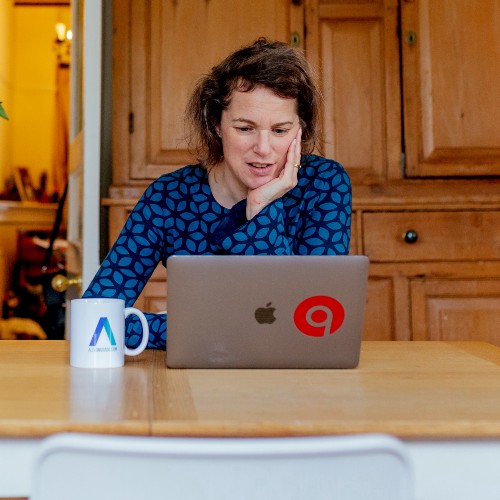It is too early to say with certainty the long-term effects that coronavirus will have on the labour market, but the disruption and uncertainty is already making life difficult for many companies and employees.
In this blog we have gathered some career tips from Johnians who have been in conversation with the College in the last couple of years, in the hope that this might prove useful to others who are seeking employment or looking to move into a new field of expertise.

Lizzie Ball (1999)
My advice to others wanting to pursue a creative career is to use your brain in all its capacity — not only to create good and unique ideas to attract attention and engagement with others, but also to think creatively about how your skills could be best utilised to make a living. The obvious path might not always be the right one for you.
Sam Cohen (2005)

Careers are long, and you shouldn’t view entrepreneurship as a profession in the traditional sense.
It’s perfectly possible to jump between entrepreneurship and more traditional roles. Try to speak to people who’ve done it — it’s not as mysterious as it seems. If you can find someone very experienced to help, as a participant, mentor, or occasional advisor, then even better. If you don’t know anyone or want to talk, contact me: siac2@cam.ac.uk.
Alison Grade (1989)

I think the perception of freelancing is changing — people used to see it as a stop gap between jobs, and that if it didn’t work you could always go and get a ‘proper job’. These days it is increasingly a necessity to be a freelancer in many professions.
Freelancing is hard work, but it’s a great way to work. You can build a career; you’re doing the work you want to do with the people you want to work with. What’s not to like?
Duncan Grierson (1988)
I recommend trying a few different things, having some different experiences, and growing your network before plunging into starting a company — unless you truly believe that you have a world-changing idea and are driven to make it happen now! It’s worth noting that companies are typically successful not because of a unique idea but because of excellent execution by a great team.
Joseph Mambwe (2011)
My advice to everyone, no matter their circumstances, is this: do not make decisions simply based on what is expected of you. Dig deep to find your true direction and have the courage to follow it.
Fiona Miller (née McLellan, 2002)
My main advice for being an artist would be to keep pushing ahead with work you love, even when you are feeling discouraged! Sometimes the creative process doesn’t move as quickly as I might like it to, and one of the hardest things to create can be a sense of success that is independent from ‘the bottom line’.
Rosie Price (2011)
To aspiring authors, my advice is to keep writing, regardless of the (many) moments of self-doubt or crises of confidence, and to make yourself vulnerable. Find something worth saying and say it as truthfully as you dare.
John Vincent (1990)
The principles of the ancient Chinese martial art Wing Tsun, which I practise, have encouraged me to not see life as a battle or a fight.
Instead, we can learn from the Taoist and Zen Buddhist principles of knowing yourself, staying relaxed, positivity and recognising that whatever happens one has the freedom and responsibility to turn it to one’s advantage and to the advantage of society.
Justin Hulbert (2009)
It can really pay to take a nap.
Recent graduates are now signing up to Johnianhub.com. Connect directly with them there and consider becoming a mentor.

